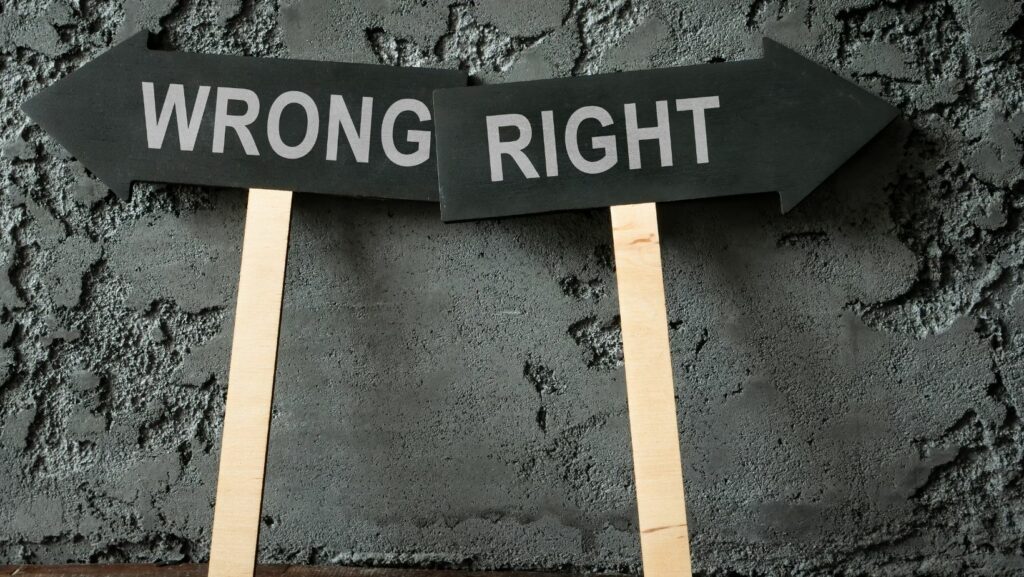Diving into the world of moral philosophy, one can’t help but encounter various ethical systems. These systems serve as the backbone of our understanding of right and wrong, shaping our actions and decisions. But with so many ethical theories, it’s crucial to discern which ones truly support moral philosophy and which do not.
Which of The Following is Not an Ethical System That Supports Moral Philosophy?
Understanding ethical systems that don’t support moral philosophy involves analyzing the key components of moral philosophy and the fundamental features of these ethical systems.
Defining Moral Philosophy
 Moral Philosophy, generally, refers to the study of moral judgments or values. It comprises an inquiry into morality’s nature and its justification. Disciplines involved encompass normative ethics, metaethics, and applied ethics. Normative ethics investigates what moral actions should be taken, metaethics explores the origin and meaning of moral values, and applied ethics examines specific moral issues in private and public life.In addition, moral philosophy attempts to differentiate moral good from moral bad, moral right from moral wrong, and moral virtue from moral vice. For instance, it would seek to establish whether lying is a vice—a moral wrong—or if there can be circumstances in which it’s a virtue, such as when it’s necessary to save a life.
Moral Philosophy, generally, refers to the study of moral judgments or values. It comprises an inquiry into morality’s nature and its justification. Disciplines involved encompass normative ethics, metaethics, and applied ethics. Normative ethics investigates what moral actions should be taken, metaethics explores the origin and meaning of moral values, and applied ethics examines specific moral issues in private and public life.In addition, moral philosophy attempts to differentiate moral good from moral bad, moral right from moral wrong, and moral virtue from moral vice. For instance, it would seek to establish whether lying is a vice—a moral wrong—or if there can be circumstances in which it’s a virtue, such as when it’s necessary to save a life.
The Role of Ethical Systems
 Ethical systems provide a framework through which moral issues are analyzed. They assist individuals and societies in deciding what’s morally right or wrong, guiding actions accordingly. Ethical systems, including consequentialism, deontology, and virtue ethics, differ significantly in their approach to moral philosophy.Consequentialism, for instance, asserts that the moral worth of actions depends on their outcomes or consequences, arguing that an action is right if it leads to the promotion of overall happiness or pleasure. Deontology, on the other hand, focuses on the moral duty or rule, insisting that the morality of an action depends on its adherence to set rules and obligations, regardless of the outcomes. Virtue ethics takes a different approach altogether, emphasizing the moral character of individuals and the virtues they should cultivate for a moral life.However, some systems like ethical subjectivism, which bases the morality of actions on individual preferences and attitudes, might arguably be less supportive of the universal principles and objective moral truths typically associated with moral philosophy. Such ethical systems can challenge the fundamental principles of moral philosophy.
Ethical systems provide a framework through which moral issues are analyzed. They assist individuals and societies in deciding what’s morally right or wrong, guiding actions accordingly. Ethical systems, including consequentialism, deontology, and virtue ethics, differ significantly in their approach to moral philosophy.Consequentialism, for instance, asserts that the moral worth of actions depends on their outcomes or consequences, arguing that an action is right if it leads to the promotion of overall happiness or pleasure. Deontology, on the other hand, focuses on the moral duty or rule, insisting that the morality of an action depends on its adherence to set rules and obligations, regardless of the outcomes. Virtue ethics takes a different approach altogether, emphasizing the moral character of individuals and the virtues they should cultivate for a moral life.However, some systems like ethical subjectivism, which bases the morality of actions on individual preferences and attitudes, might arguably be less supportive of the universal principles and objective moral truths typically associated with moral philosophy. Such ethical systems can challenge the fundamental principles of moral philosophy.
Major Ethical Systems Supporting Moral Philosophy
Moral philosophy acquires its strength and relevance from multiple ethical systems. These systems act as positional beacons, illuminating the path towards effectively determining what is morally right or wrong. Three key systems comprise these cardinal points: Deontology, Utilitarianism, and Virtue Ethics.
Deontology: Duty-Based Ethics
Established primarily by German philosopher Immanuel Kant, Deontology posits that ethical decisions should not be based on their consequences. Rather, certain actions are morally correct or incorrect, regardless of their outcome. For example, Kantians argue that lying is inherently wrong, no matter the benefits it may bring. This framework advocates principles over consequences, claiming moral validity in the objective nature of duties and rules.
Utilitarianism: Outcome-Based Ethics
 Utilitarianism, pioneered by philosophers like Jeremy Bentham and John Stuart Mill, takes a distinctly different approach. It asserts that the moral value of an action resides in its outcomes, not in the act itself. The principle of ‘greatest happiness for the greatest number’ anchors this system, identifying actions that maximize overall wellbeing as morally superior. For instance, under utilitarian consideration, if sharing confidential information benefits more people than it harms, it’s deemed right.
Utilitarianism, pioneered by philosophers like Jeremy Bentham and John Stuart Mill, takes a distinctly different approach. It asserts that the moral value of an action resides in its outcomes, not in the act itself. The principle of ‘greatest happiness for the greatest number’ anchors this system, identifying actions that maximize overall wellbeing as morally superior. For instance, under utilitarian consideration, if sharing confidential information benefits more people than it harms, it’s deemed right.
Virtue Ethics: Character-Based Ethics
Contrasting Deontology and Utilitarianism, Virtue Ethics emphasizes moral character over rules or consequences. Advocates of this system, including eminent Greek philosopher Aristotle, claim moral virtue emerges not from singular actions but from lifelong habits and character traits. Therefore, a person possessing virtues, such as courage, wisdom, and mercy, is morally excellent. A clear illustration would be someone who assists a stranger not because of duty or potential reward, but because kindness has become an ingrained part of their character.

